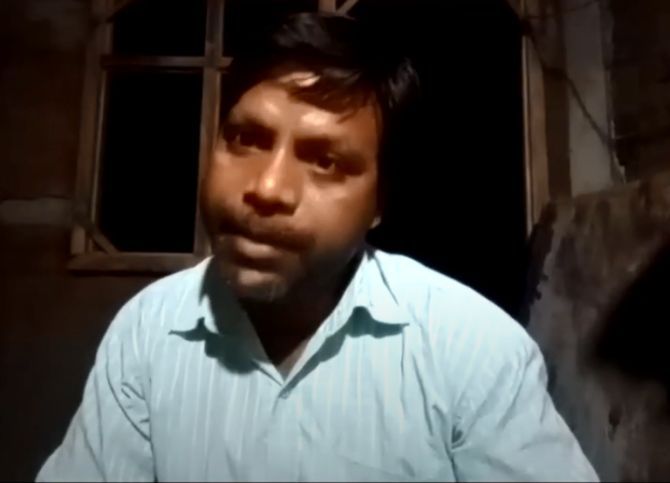While those who attended 'Livelihoods in Lockdown' learnt a lot, was anyone from the government listening? asks Jyoti Punwani

"We've been working for more than our normal eight hours, even though we only got Rs 1,000 for this extra work. But all the time we've faced hurdles."
"In the first wave, when we were tracking those with Covid symptoms, dabangs in villages refused to let us take their details, shouting 'Teri yeh aukat?'. We also had to convince villagers that Muslims were not spreading corona."
"In the second wave, we were threatened with pay cuts if we didn't bring villagers for vaccination, but statements of Ramdev and other BJP leaders about Coronil, gobar and gau mutra, made it difficult to convince villagers."
-- Surekha and Kamlesh, ASHA Workers Union, Haryana
***
"When HIV spread, we had to insist on 'no sex without condoms'. Now, we insist on 'no sex without masks'."
"For customers we keep a soap, a bucket of water, and sanitiser outside the door. When the sanitiser gets over, we use two drops of alcohol instead."
"Thanks to these precautions, no sex worker died in the first wave, though in the second wave, some did."
-- Kiran Deshmukh, President, National Network of Sex Workers, Sangli
***
"Last year, no migrant worker wanted to go back to the city. But without any work, what could they do?"
"Now back in the villages again, they have been forced to sell off their belongings bit by bit... their furniture, their land, just to feed their families. The government should come and see their condition."
-- Sanjay Sahni, Samaj Parivartan Shakti Sanghatan, Bihar

These voices came to us last week courtesy Bahujan Economists, a new forum made up of young economists dissatisfied with the perspective with which the discipline is taught and discussed, and aiming to give it a direction in which the hitherto "missing narrative of caste" is acknowledged.
The speakers brought together on Zoom in Bahujan Economists's Struggle without State: Livelihoods in the Lockdown, were all part of independent unions.
Unconnected with one another, the experience of struggling for their rights as part of a group had led them all to the same conclusion: "This society is for capitalists, workers have no place in it."
Sima Kumari, from the Stranded Workers Action Network, realised this first hand when, faced with joblessness after returning to Jharkhand during the first lockdown, she took nursing training and went to Goa to work for a private company.
"The owner got a fortune, but paid us just Rs 10,000 each, though we worked 24/7. The food was terrible; and we had to listen to the abuses of rich patients."
"But what shocked us most was her filing a case against us when we decided to leave Goa when cases there began increasing. Should we have waited to die?"

Nitin Kumar Lahore, of the Valmiki Youth Welfare Committee, Indore, spoke bitterly about how the pictures of doctors and policemen who had died of Covid had been put up in Indore, but not those of safai kamgars who had died cleaning a city which has been voted the country's 'cleanest city' four times running.
Safai kamgars' salaries in Indore ranged from Rs 6,000 to Rs 30,000, depending on their category. Many had worked for 30 years but were still classified as 'temporary'; old enough to retire, they were still forced by poverty to clean the streets.
Permanent and 'muster workers' received free rations during the first lockdown, revealed Lahore -- but just once. Even then, they had to fight to get the promised cooking oil. Temporary workers didn't even receive that much.

During the lockdown, Lahore saw for the first time, school going children accompany their parents, jhadu in hand. How many of them would go back to school, he wondered.
Lahore listed ambitious demands for safai kamgars: A minimum salary of Rs 50,000; free schooling; seats reserved in ITIs, but most of all, permanent jobs -- the one demand safai kamgars across the country would be willing to fight for.
Sanjay Sahni, who unsuccessfully fought last year's Bihar assembly elections as an Independent candidate, blew the lid off the welfare schemes for which the Centre keeps patting itself on its back.
"This government tom toms MNREGA, but the scheme was introduced by the previous government," he pointed out. "Has the BJP government improved it in any way? I'd like to see those MPs who sit in Parliament subsist on Rs 200 a day."
"As for Ayushyaman cards (which entitle you to coverage of Rs 500,000 per year)," he added, "a sick worker could die before the card gets made. Workers have had no choice but to turn to private hospitals during the pandemic."
Sahni, himself a migrant worker for 20 years in Delhi before he returned to Bihar, said he planned to form a migrant workers' party. "No one wants to migrate, leaving his kids behind, knowing they won't get any education in government schools and will ultimately end up like him."
Among the sectors represented, one had been most successful in getting their demands during the pandemic: Sex workers.
The National Network of Sex Workers had got the Maharashtra government to implement the Supreme Court order that Rs 5,000 per month be given to sex workers, as well as the National Human Rights Commission order that HIV medicines available only in Mumbai be sent to districts to which sex workers had returned during the lockdowns.
Seeing their members borrow from moneylenders at 15%-20% interest during the lockdown, the NNSW asked the Centre for their share of the funds sent by the Global Fund set up to help poor countries fight Covid.
Told there was no such quota, the NNSW wrote directly to the Global Fund, and got an assurance that a fixed amount would be allocated for sex workers in the next instalment.

The NNSW ensured its 150,000 members got rations through the first lockdown. Despite that, days after it was suddenly announced, the fear of earnings drying up and specially, the uncertainty of visiting her children, drove one sex worker to burn herself to death, revealed Deshmukh.
These testimonies showed that governments didn't bother to protect the very workers they depended on most to fight Covid.
Indore's sanitation workers got sanitisers just once; Haryana's ASHA workers got nothing till they went on strike. They were also denied the Rs 60 lakh (Rs 6 million) insurance promised to other government employees who died of Covid.
Surekha revealed that ASHA workers had refused to operate Haryana's Midday Meal (MDM) App downloaded on their phones by their bosses. The App, supposed to efficiently monitor the MDM scheme, also tracks every ASHA worker's location.

Aditi Priya, founder-member, Bahujan Economists, and her colleague Phokrizat Mayirnao, said their platform was meant for "people at the margins both in terms of caste and class, who do not make headlines. The objective is to improve their representation in the economics and policy circle, and to provide a platform to people at the receiving end of such policies to voice their concerns."
While those who attended 'Livelihoods in Lockdown' learnt a lot, was anyone from the government listening?
*Photographs posted only for representational reasons.










